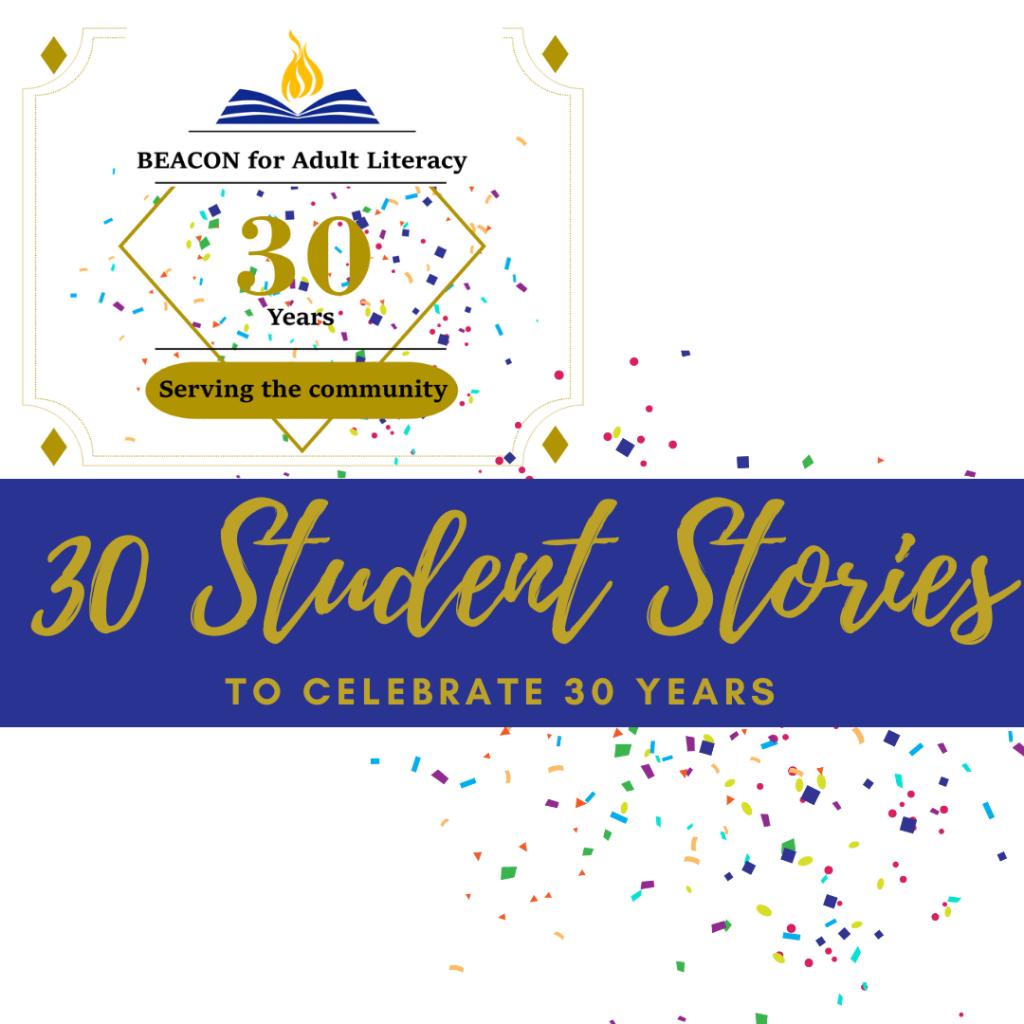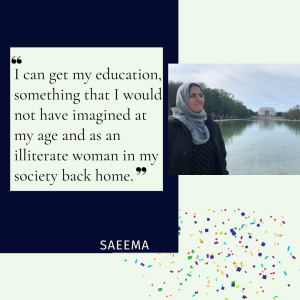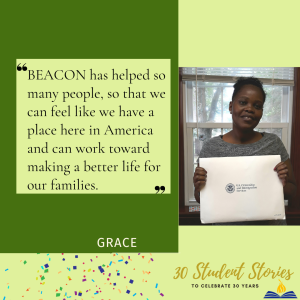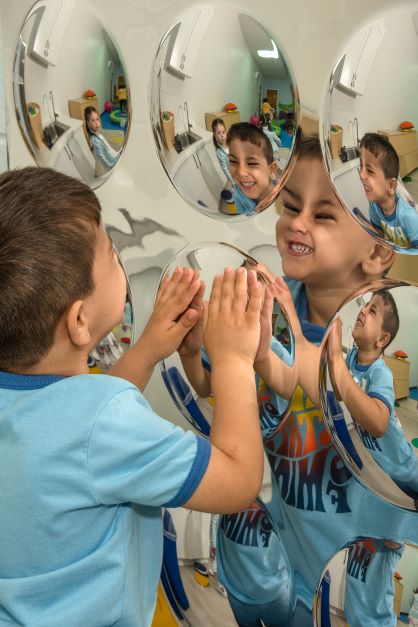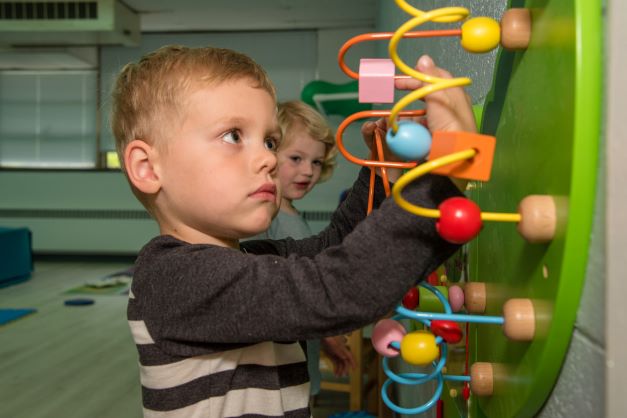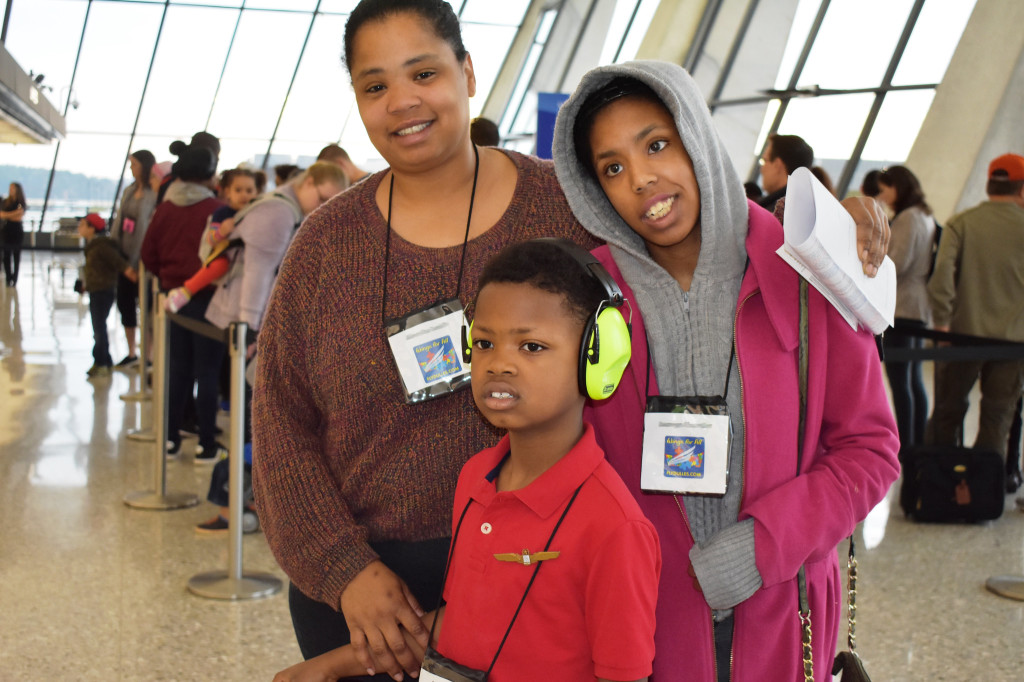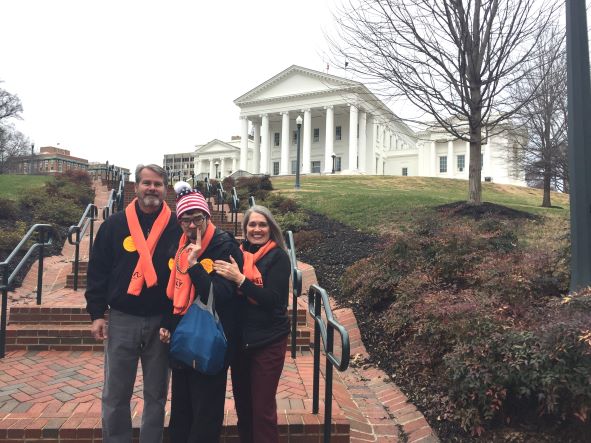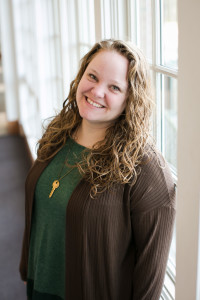Local Nonprofit Bulletin
07.8.22
Shoutouts to small nonprofits in the DMV, upcoming events and volunteer opportunities, and even more upcoming Save the Dates! Have questions or something you’d like featured? Reach out to Amanda, our Communications and Marketing Coordinator, to collaborate!
Shoutouts
We are so excited to learn about the recent formation of the Arts Institute for Creative Advancement, a year-long education and apprenticeship program in technical theater to launch in January 2023, in which participants will be paid to learn and work. Seventeen of the largest arts education organizations in the city, including many of our nonprofit partners like The Theatre Lab, Life Pieces to Masterpieces, Sitar Arts Center, and Capitol Hill Arts Workshop, will be training young people who are disconnected from or under-engaged in school and work to enter DC’s creative economy.
Congratulations to Street Sense Media for winning six awards at the Society of Professional Journalists’ 2022 Dateline Awards! View the breakdown of their award-winning stories and hear their Deputy Editor Kaela Roeder talk about what the Roe reversal means for DC on City Cast DC’s podcast.
Ashley McSwain, Executive Director of Community Family Life Services, was featured on Fox 5 news and spoke about their Serving Moms in Crisis conference last month, which was about “communicating to the community the experience that women have who are mothers while they’re incarcerated.”
Congratulations to Life Pieces to Masterpieces for receiving the 2022 Citizen Diplomat Award!
Have you seen “The Melody Lingers On“? A 2021 Official Selection of the International Social Change Film Festival, this film by One Common Unity follows Marcus Morgan, a talented hip-hop artist known as Popp Culture, as he returns to DC to become a youth mentor with the same peace education program that helped him heal after losing his brother to gun violence more than a decade before.
Apply to become a mentee with The Dream Project! Their 2022-23 Mentoring Program will be held from mid-September until the end of April and helps prepare high school seniors from across Virginia to gain admission to, and succeed in, college.
“Black student fathers deserve systems, allies and communities that fight for us, elevate our experiences, and understand our potential.” Read this op-ed in The Grio about the invisible lives of Black student fathers, written by Jahkeer Wainwright, a Generation Hope student scholar.
The Arc of Northern Virginia is offering the 2022 LEAP (Life Enrichment Awards Program) Awards, which are grants given to support the purchase or acquisition of goods and services directly linked to youth and young adults with disabilities and chronic illnesses engaged in transition planning and implementation that are not usually available from public service and government agencies. Apply by August 15.
Journalists with diverse backgrounds can apply for emergency grants from the Fund for Investigative Journalism on a rolling basis for stories that break new ground and expose wrongdoing related to threats to democracy in the US!
Get Involved
Volunteer with My Sister’s Place! | View their calendar for upcoming opportunities to assist at their shelter, with moving, and more.
Become a Barker Champion! | Volunteer with the Barker Adoption Foundation, who helps provide services for adoptees, adoptive parents, and birth/first parents.
Volunteer with the Justice Arts Coalition | View their list of volunteer opportunities and/or apply to participate in their pARTner project, which provides artists on the outside ages 18 and over with an opportunity to foster connection with artists in prison through letter correspondence and the exchange of creative works.
Volunteer with Community Reach of Montgomery County | Check out their full list of opportunities, including assisting with their Language Outreach Program, Housing Program, being a Friendly Caller to senior clients, and more.
Apply to foster a cat or dog! | Learn more about the HART Foster Program if you want to care for a cat or dog but can’t accept a long-term commitment.
Volunteer with the Alice Ferguson Foundation | From field work on Sundays to a children’s garden club, browse their upcoming opportunities.
Thursdays, July 7 – August 18, 5:30 – 8:15 PM | CREATE, VisArts’ free outdoor summer art workshops!
July 9, 9:00 AM – 12:00 PM | Plastic Free July Cleanup at Kenilworth Park with Anacostia Riverkeeper
July 9, 9:00 – 11:30 AM, 11:30 AM – 2:00 PM, 2:00 – 4:30 PM | Volunteer to provide childcare at Generation Hope events
July 9, 10:30 AM | Storytelling & Scavenger Hunt with Story Tapestries, Game Genius, and FRESHFARM
July 9, 11:00 AM | A sneak peek performance of SPIRIT MOVES at Oxon Run Park
July 9, 1:00 – 2:00 PM | VisArts’ NextGen 9.0 Artist Talks
July 9, 1:00 – 3:00 PM | Project Create Arts Center’s Family Art Day — Affirmation Jars
July 9, 2:00 – 4:00 PM | Special screening of “My Brother’s Journey”
July 9, 5:00 – 8:00 PM | Washington Bach Consort at Dupont Circle BID’s 2022 See You at the Circle Concert Series
July 10, 9:00 AM – 12:00 PM | July Community Workday at Common Good City Farm
July 10, 2:00 PM | Brush up on your butterfly identification skills in this virtual workshop with the Prince William Conservation Alliance
July 15, 9:00 AM – 4:00 PM | Snorkel and paddle the Shenandoah at Potomac Riverkeeper Network’s Riverpalooza
July 16, 11:00 AM | Girls Rock! DC Showcase
July 16, 11:00 AM – 1:00 PM | Virtual Facilitator Training at The DC Center for the LGBT Community
July 16, 7:00 – 8:30 PM | Spirit of Summer Series: Proverbs Reggae Band
July 18, 12:00 – 2:00 PM | Shepherd’s Center of Northern Virginia Summer Lunch N Life
July 18, 6:00 – 8:00 PM | “The Art of Grief”: A Lived Experience Showcase
July 18 – July 22, 9:00 AM – 3:00 PM | Great and Small’s 2022 Military Kids Summer Camp
July 20, 11:00 AM – 12:30 PM | Juanita C. Grant Foundation presents an Elder Abuse and Fraud Prevention Training Series
July 21, 5:00 – 6:00 PM | Join Mother’s Outreach Network at their monthly DC Guaranteed Income Coalition meeting
July 25 – July 29, 9:00 AM – 6:00 PM | Apply to participate in One Common Unity’s Fly By Light National Training!
July 27, 12:00 PM | Lunch and Learn: How to Talk About Sexual Violence with The Arc of Northern Virginia
July 27, 2:00 – 3:00 PM | Only Make Believe free public show
July 30, 7:30 PM | Juleps in July benefiting Good Shepherd Housing and Family Services
Save the Dates
August 1 – 3 | The Arc Virginia State Convention: Reconnect & Re-Energize
August 22 | HIPS Virtual Gathering: Interconnections of Harm Reduction & Reproductive Justice
August 22 – 28 | Washington Improv Theater’s Improvapalooza
September 17, 9:00 AM | 2022 Superheroes for SafeSpot 5k & Fun Run
September 17, 6:30 – 11:30 PM | Hope for Henry: A Night to Remember
September 17 | C&O Canal Trust’s Park After Dark
September 22, 6:30 – 8:30 PM | 5th Annual Visible Voices Fundraiser for Community Family Life Services
September 24, 10:00 AM – 5:30 PM | Healwell’s HEALTHCARE & INTIMACY virtual symposium
October 1, 12:00 – 6:00 PM | Healwell’s 12th Birthday Bonanza
October 1, 6:00 PM | The Grassroot Project’s 2022 Grassroots Gala
October 6, 6:00 PM | One Night One Goal at Audi Field with DC SCORES
October 7, 6:30 PM | Elevate Voices — Celebrate Community with Story Tapestries
October 24, 10:30 AM – 8:00 PM | 2022 SafeSpot Champions for Children Tournament
October 28, 6:00 – 9:30 PM | SCAN of Northern Virginia’s Toast to Hope
November 14, 7:00 PM | Make Believe on Broadway

